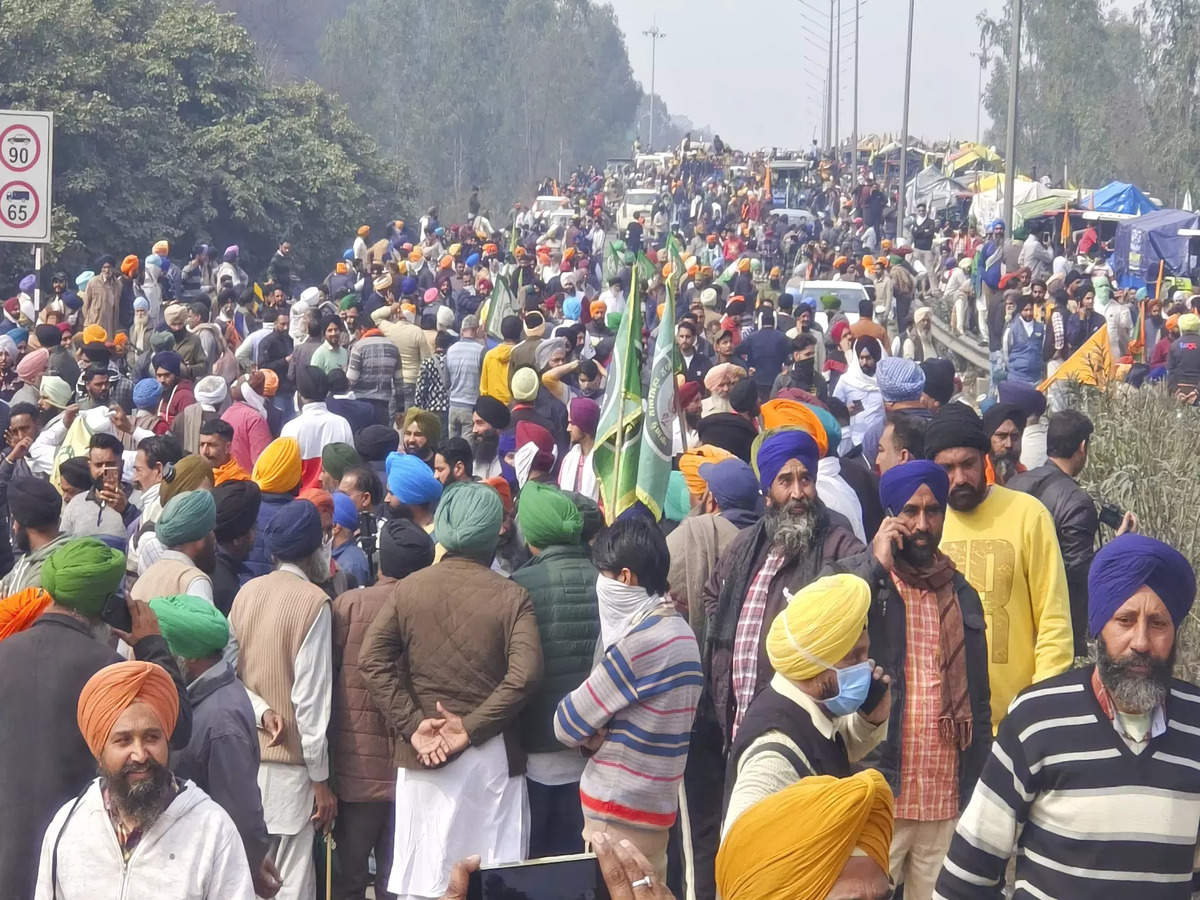Meanwhile, the Delhi Police invoked Section 144 of the CrPC, which forbids gatherings of five or more people in the nation’s capital until March 12.
A law ensuring a minimum support price (MSP) for all crops is one of the demands that the unions are pressing the Centre to acquiesce to, as they boost the ante ahead of the Lok Sabha elections. The Swaminathan Commission’s recommendations, farm debt forgiveness, pensions for farmers and farm labourers, the dismissal of police cases, and justice for the victims of the Lakhimpur Kheri riots in 2021 are among the other demands made by the demonstrators.

Source: The Economic Times- India Times
Every individual or group has the constitutional right to organise a peaceful protest. This is an acceptable method for demonstrators to engage the administration in dialogue in a democracy. The 2020–21 year-long farmers’ movement marked a turning point in Indian history following independence.
With incredible tenacity and tenacity, the demonstrators had compelled the Centre to revoke the three controversial farm regulations. But it looks like the current demonstration is a political ploy to put pressure on the administration to give in to their demands before the elections.
Source: CNBC- TV 18
Farm unions should not focus on short-term advantages, but rather the bigger picture. Except for a few states, the MSP regime has mainly been applied to wheat and paddy. Legalisation across the nation would only encourage growers to increase their yield of these crops. Although this is essential for food security, it may also negatively impact the water table, which is already severely strained as a result of excessive groundwater extraction. Indian agriculture’s future is in jeopardy. It is imperative that multiple stakeholders collaborate to develop a long-term action plan that will guarantee farming’s viability and sustainability.
What do you think about this? Comment below.

